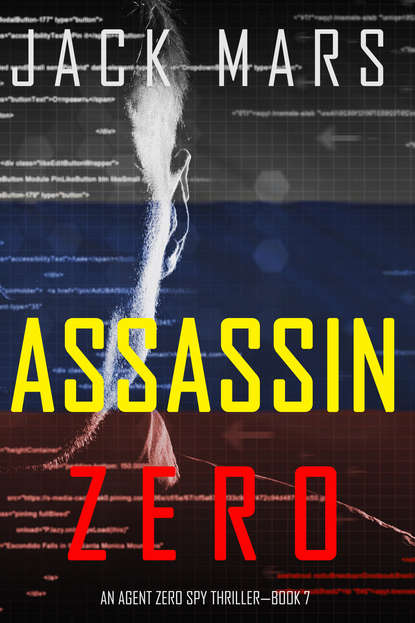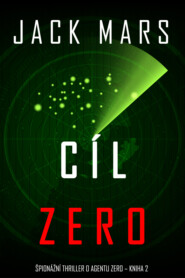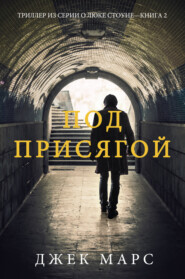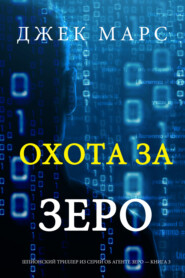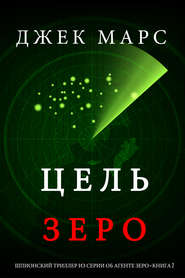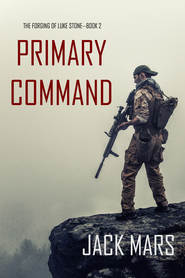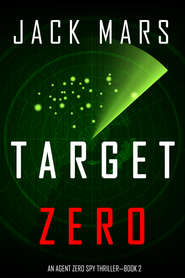По всем вопросам обращайтесь на: info@litportal.ru
(©) 2003-2025.
✖
Assassin Zero
Автор
Год написания книги
2020
Настройки чтения
Размер шрифта
Высота строк
Поля
“Just look at the state of things.” Maria’s tone softened, but she didn’t look directly at either of them. “We’ve got a trade war on our hands with China. Our ties to Russia are all but severed. Ukraine is less than pleased with us. Belgium and Germany are both still pissed about what they believe was an unsanctioned op last month. No one trusts our leadership—least of all our own people. We don’t even have a vice president yet.” She shook her head. “We cannot allow for the possibility of an attack on US soil, even if it’s just a possibility. Not if we can help it.”
Zero wanted to argue. He wanted to point out that the efficacy of two men, highly trained or not, was still paltry compared to a cooperative effort of law enforcement agencies. He could understand why they didn’t want to make a big public issue out of this, but even so—if they truly wanted to find these people, if they really thought that an attack on the US was likely, they could put out an APB, starting with coastal areas of Florida, Louisiana, Texas, the best estimates of potential targets considering the Havana attack. Have the Cuban government investigate the missing boat. Work together, as they should, to protect their respective citizens and anyone else who might be hurt along the way.
And Zero was about to suggest it aloud too, but before he got the chance, Maria’s cell phone rang.
“One sec,” she told them before answering with her typical greeting: “Johansson.”
Then her face fell slack, and her gaze met Zero’s. He had seen that expression before, many times—far too many for comfort. It was a look of shock and horror.
“Send me everything,” Maria said into the phone, her voice a hoarse whisper. She ended the call, and he already knew what she was going to tell them before she even said it.
“There’s been an attack on US soil.”
CHAPTER EIGHT
Already? Zero was stunned by the speed with which a subsequent attack had come—he had clearly underestimated the severity of the situation.
But he was even more shocked when Maria told them where it happened.
“The attack was on a small town in the Midwest.” Maria studied the tablet screen, scrolling through the intel just as fast as it was coming in. “A place called Springfield, in Kansas—population of eight hundred forty-one.”
“Kansas?” Zero repeated. If they had gotten all the way to Kansas since the Havana attack, that meant… “They must have traveled by plane.”
“Which means this was planned,” Strickland added. The young agent stood suddenly, as if there was something he could do in that moment. “But why? What could possibly be significant about a one-horse town in Kansas?”
“No idea,” Maria murmured. Then her hand flew to her mouth. “Oh my god.” She looked up at Zero, her eyes wide. “There was a parade going on. College kids, families… children.”
Zero took a deep breath, working to mentally put distance between the part of him that was a father and former professor, and the part of him that was an agent. “Fallout?”
“Unclear,” Maria reported, staring back down at the tablet. “This just happened. The first nine-one-one call was twenty-three minutes ago. But…” Her throat flexed in a gulp. “Initial reports from first-responders are claiming sixteen dead at the scene. Though it’s likely more.”
Strickland paced the short length of the conference room like a tiger waiting to be sprung from a cage. “We can’t assume the casualties were entirely the result of the weapon. Some could have been from panic.”
“But maybe that’s the point,” Zero murmured.
“Hang on, we’ve got a video incoming.” Maria tilted the tablet, and both men crowded at her shoulders to see it. She pressed play, and the screen filled with the shaky perspective of someone filming with a cell phone. The scene was of a small town’s main stretch, the camera angle directed up the block, catching in its lens the sidewalks jammed with people and chairs on both sides of the avenue.
From around the corner up ahead came a group of young people in green and white uniforms—a marching band, stepping in time with their instruments aloft, the approaching music drowning out the din of applause and cheers.
“They’re almost here, Ben!” said a cheerful female voice, presumably the woman behind the camera phone. “Are you ready? Wave to Maddie!”
The camera panned down briefly, showing a little boy who couldn’t have been more than five or six, an enormous smile on his face as he waved at the oncoming band. Then it panned back up, showing a group of young men in green jerseys coming around the corner behind the band—a football team, it appeared, tossing handfuls of candy from buckets.
A knot of dread formed in Zero’s stomach, knowing that disaster was about to strike.
The transition wasn’t sudden. It was slow and bizarre, unfolding over the next several seconds. Zero leaned closer, apprehensive yet rapt as he watched.
First, the camera panned down slightly, and he just barely heard the woman behind it as she muttered, “Does anyone else feel that? What is that…?”
Almost at the same time, several members of the band stepped out of cadence. One by one, instruments stopped playing as gasps and confused shouts mingled with the cheers.
A trumpet hit the street. Then a body. Band members stumbled. Behind them, the young men in jerseys keeled. The camera shook terribly as the woman whipped left and right, looking for a source, or perhaps trying to make sense of what was happening.
“Ben?” she shrieked. “Ben!”
Screams rose from the crowd as it surged in every direction. For all of two seconds, Zero witnessed absolute chaos; people running over one another, holding their heads, clutching stomachs, falling over. Then the phone was dropped to the street and the screen went black.
“Jesus,” Strickland murmured.
Zero rubbed his chin as he stepped back from the table. He had only been half-right; it was true that a single assault rifle would have done more damage, but this—an invisible force, a hidden weapon, no assailants in sight—this was downright harrowing. It had simply swept through the street like a slow breeze, affecting hundreds of people in seconds. If something like this got out…
“Is this video public?” he asked.
“I hope not,” Maria said, clearly thinking the same thing he was. “It came from Springfield PD, which is…” She consulted the tablet again. “Only five officers strong. We’ll do what we can on our end, but I doubt they’ll be able to keep that under wraps.”
“If that gets out, people are going to panic,” said Strickland.
“Exactly,” Zero agreed as he worked out a theory aloud. “In Havana, they struck at a packed tourist district. In Kansas, a busy parade route. Populated areas that appear random. Maybe they’re trying to prove that their weapon is just a catalyst, and that people will do just as much damage to each other as they can do to them.”
“So it could be a message after all,” said Strickland as he paced the conference room.
It was the only thing that made sense in the moment; an attack on such a small town was an attempt to make their targets appear random in order to sow panic and confusion. “But if that’s the case, what would happen if they got this thing into New York City? Or Washington, DC?”
Strickland stopped pacing. “They’re practically taunting us. Telling us that the next target could be anywhere. At any time.”
“So far local authorities aren’t sure what happened,” Maria announced. “It doesn’t seem like anyone but us is linking it to the sonic attack on Havana—yet.”
“But as soon as they do,” Zero added, “no one is going to feel safe.” He was already imagining it; something as innocent as walking down a busy street and being caught in an ultrasonic blast. Not knowing what was happening or where it was coming from or what to do or how to stop it.
It was a terrifying thought, even for him.
Maria’s tablet chirped suddenly. Zero glanced over her shoulder to see an incoming call on the CIA’s encrypted server, but instead of displaying a source it simply read, “SECURE.”
Maria took a breath and answered. It was a video call; a smartly dressed brunette woman suddenly appeared, looking solemn as a statue.
“Deputy Director,” said the woman by way of greeting.
“Ms. Halpern.”
Zero didn’t recognize the woman’s face, but he knew the name; Tabitha Halpern was the White House Chief of Staff under President Rutledge. And he knew the background behind her quite well. She was sitting in the Situation Room, a place he had been numerous times before.
“I have the president here with me,” Halpern said. “He’d like a word.” She reached forward and swiveled the screen until it settled on Jonathan Rutledge, seated at the head of the conference table. He wore a white shirt with the sleeves pushed to his elbows, a blue tie knotted loosely around his neck, and a world-weary expression on his face.
“Mr. President.” Maria nodded. “I’m sorry you had to take that seat twice in one day.”
“So you’ve heard?” Rutledge said, skipping the formalities.
“Yes sir. Just now.”
Zero wanted to argue. He wanted to point out that the efficacy of two men, highly trained or not, was still paltry compared to a cooperative effort of law enforcement agencies. He could understand why they didn’t want to make a big public issue out of this, but even so—if they truly wanted to find these people, if they really thought that an attack on the US was likely, they could put out an APB, starting with coastal areas of Florida, Louisiana, Texas, the best estimates of potential targets considering the Havana attack. Have the Cuban government investigate the missing boat. Work together, as they should, to protect their respective citizens and anyone else who might be hurt along the way.
And Zero was about to suggest it aloud too, but before he got the chance, Maria’s cell phone rang.
“One sec,” she told them before answering with her typical greeting: “Johansson.”
Then her face fell slack, and her gaze met Zero’s. He had seen that expression before, many times—far too many for comfort. It was a look of shock and horror.
“Send me everything,” Maria said into the phone, her voice a hoarse whisper. She ended the call, and he already knew what she was going to tell them before she even said it.
“There’s been an attack on US soil.”
CHAPTER EIGHT
Already? Zero was stunned by the speed with which a subsequent attack had come—he had clearly underestimated the severity of the situation.
But he was even more shocked when Maria told them where it happened.
“The attack was on a small town in the Midwest.” Maria studied the tablet screen, scrolling through the intel just as fast as it was coming in. “A place called Springfield, in Kansas—population of eight hundred forty-one.”
“Kansas?” Zero repeated. If they had gotten all the way to Kansas since the Havana attack, that meant… “They must have traveled by plane.”
“Which means this was planned,” Strickland added. The young agent stood suddenly, as if there was something he could do in that moment. “But why? What could possibly be significant about a one-horse town in Kansas?”
“No idea,” Maria murmured. Then her hand flew to her mouth. “Oh my god.” She looked up at Zero, her eyes wide. “There was a parade going on. College kids, families… children.”
Zero took a deep breath, working to mentally put distance between the part of him that was a father and former professor, and the part of him that was an agent. “Fallout?”
“Unclear,” Maria reported, staring back down at the tablet. “This just happened. The first nine-one-one call was twenty-three minutes ago. But…” Her throat flexed in a gulp. “Initial reports from first-responders are claiming sixteen dead at the scene. Though it’s likely more.”
Strickland paced the short length of the conference room like a tiger waiting to be sprung from a cage. “We can’t assume the casualties were entirely the result of the weapon. Some could have been from panic.”
“But maybe that’s the point,” Zero murmured.
“Hang on, we’ve got a video incoming.” Maria tilted the tablet, and both men crowded at her shoulders to see it. She pressed play, and the screen filled with the shaky perspective of someone filming with a cell phone. The scene was of a small town’s main stretch, the camera angle directed up the block, catching in its lens the sidewalks jammed with people and chairs on both sides of the avenue.
From around the corner up ahead came a group of young people in green and white uniforms—a marching band, stepping in time with their instruments aloft, the approaching music drowning out the din of applause and cheers.
“They’re almost here, Ben!” said a cheerful female voice, presumably the woman behind the camera phone. “Are you ready? Wave to Maddie!”
The camera panned down briefly, showing a little boy who couldn’t have been more than five or six, an enormous smile on his face as he waved at the oncoming band. Then it panned back up, showing a group of young men in green jerseys coming around the corner behind the band—a football team, it appeared, tossing handfuls of candy from buckets.
A knot of dread formed in Zero’s stomach, knowing that disaster was about to strike.
The transition wasn’t sudden. It was slow and bizarre, unfolding over the next several seconds. Zero leaned closer, apprehensive yet rapt as he watched.
First, the camera panned down slightly, and he just barely heard the woman behind it as she muttered, “Does anyone else feel that? What is that…?”
Almost at the same time, several members of the band stepped out of cadence. One by one, instruments stopped playing as gasps and confused shouts mingled with the cheers.
A trumpet hit the street. Then a body. Band members stumbled. Behind them, the young men in jerseys keeled. The camera shook terribly as the woman whipped left and right, looking for a source, or perhaps trying to make sense of what was happening.
“Ben?” she shrieked. “Ben!”
Screams rose from the crowd as it surged in every direction. For all of two seconds, Zero witnessed absolute chaos; people running over one another, holding their heads, clutching stomachs, falling over. Then the phone was dropped to the street and the screen went black.
“Jesus,” Strickland murmured.
Zero rubbed his chin as he stepped back from the table. He had only been half-right; it was true that a single assault rifle would have done more damage, but this—an invisible force, a hidden weapon, no assailants in sight—this was downright harrowing. It had simply swept through the street like a slow breeze, affecting hundreds of people in seconds. If something like this got out…
“Is this video public?” he asked.
“I hope not,” Maria said, clearly thinking the same thing he was. “It came from Springfield PD, which is…” She consulted the tablet again. “Only five officers strong. We’ll do what we can on our end, but I doubt they’ll be able to keep that under wraps.”
“If that gets out, people are going to panic,” said Strickland.
“Exactly,” Zero agreed as he worked out a theory aloud. “In Havana, they struck at a packed tourist district. In Kansas, a busy parade route. Populated areas that appear random. Maybe they’re trying to prove that their weapon is just a catalyst, and that people will do just as much damage to each other as they can do to them.”
“So it could be a message after all,” said Strickland as he paced the conference room.
It was the only thing that made sense in the moment; an attack on such a small town was an attempt to make their targets appear random in order to sow panic and confusion. “But if that’s the case, what would happen if they got this thing into New York City? Or Washington, DC?”
Strickland stopped pacing. “They’re practically taunting us. Telling us that the next target could be anywhere. At any time.”
“So far local authorities aren’t sure what happened,” Maria announced. “It doesn’t seem like anyone but us is linking it to the sonic attack on Havana—yet.”
“But as soon as they do,” Zero added, “no one is going to feel safe.” He was already imagining it; something as innocent as walking down a busy street and being caught in an ultrasonic blast. Not knowing what was happening or where it was coming from or what to do or how to stop it.
It was a terrifying thought, even for him.
Maria’s tablet chirped suddenly. Zero glanced over her shoulder to see an incoming call on the CIA’s encrypted server, but instead of displaying a source it simply read, “SECURE.”
Maria took a breath and answered. It was a video call; a smartly dressed brunette woman suddenly appeared, looking solemn as a statue.
“Deputy Director,” said the woman by way of greeting.
“Ms. Halpern.”
Zero didn’t recognize the woman’s face, but he knew the name; Tabitha Halpern was the White House Chief of Staff under President Rutledge. And he knew the background behind her quite well. She was sitting in the Situation Room, a place he had been numerous times before.
“I have the president here with me,” Halpern said. “He’d like a word.” She reached forward and swiveled the screen until it settled on Jonathan Rutledge, seated at the head of the conference table. He wore a white shirt with the sleeves pushed to his elbows, a blue tie knotted loosely around his neck, and a world-weary expression on his face.
“Mr. President.” Maria nodded. “I’m sorry you had to take that seat twice in one day.”
“So you’ve heard?” Rutledge said, skipping the formalities.
“Yes sir. Just now.”





